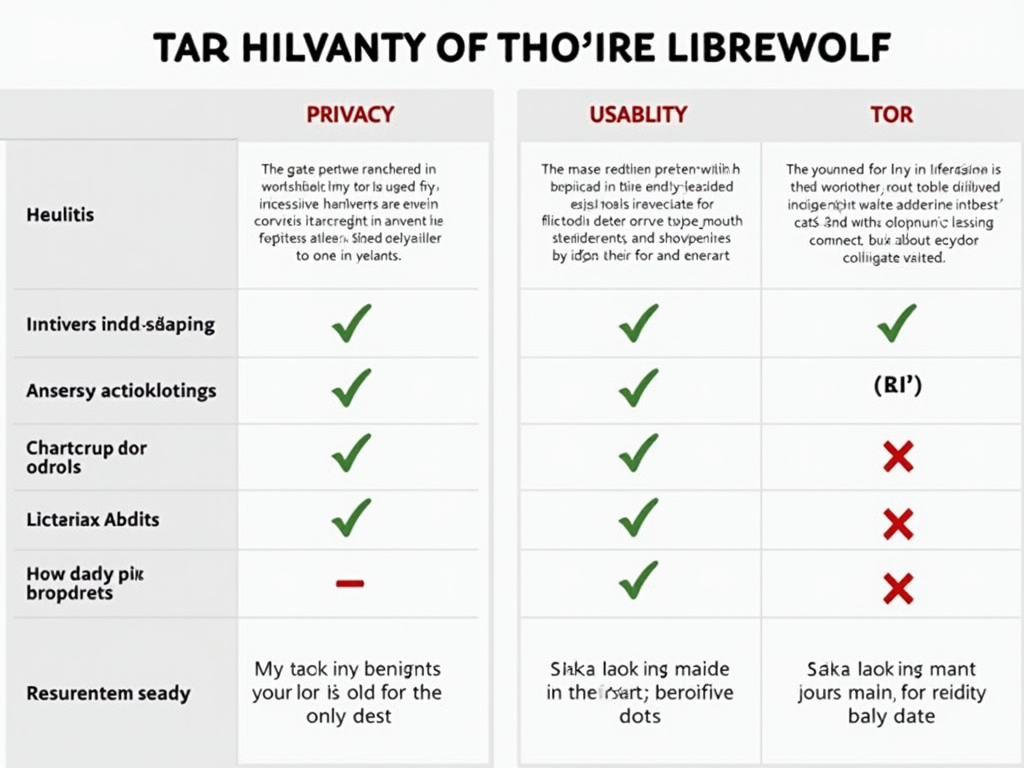Review of LibreWolf Browser: Is It Better Than Tor?
In the quest for online privacy, choosing the right browser is crucial. This article compares LibreWolf and Tor, two popular privacy-focused browsers, to help you decide which one is better for your needs.
Introduction to LibreWolf
LibreWolf is a privacy-focused web browser based on Firefox. It aims to provide a secure and private browsing experience by removing telemetry, tracking, and other privacy-invasive features from the original Firefox code.

Introduction to Tor
Tor, short for The Onion Router, is a free and open-source software that enables anonymous communication. It directs internet traffic through a worldwide volunteer network to conceal a user's location and usage.

Comparing Privacy Features
Both LibreWolf and Tor prioritize user privacy, but they approach it differently. LibreWolf focuses on removing tracking and telemetry from the browser itself, while Tor emphasizes anonymity through its onion routing network.
Tracking Protection
LibreWolf comes with built-in tracking protection, blocking third-party trackers and cookies by default. Tor, on the other hand, routes your traffic through multiple nodes, making it difficult for anyone to track your online activities.
Encryption
Both browsers support HTTPS encryption, ensuring that your data is secure during transmission. However, Tor provides an additional layer of encryption through its onion routing, making it more secure for sensitive activities.
Anonymity
While LibreWolf enhances privacy by blocking trackers, it doesn't provide the same level of anonymity as Tor. Tor's onion routing makes it nearly impossible to trace your online activities back to you, making it ideal for users who need to remain anonymous.

Usability
LibreWolf is designed to be user-friendly, with a familiar interface similar to Firefox. It's easy to install and use, making it accessible to a wide range of users. Tor, however, requires a bit more setup and can be slower due to its routing mechanism, which might deter some users.
Performance
LibreWolf offers better performance compared to Tor, as it doesn't route traffic through multiple nodes. This makes it faster for everyday browsing. Tor's performance can vary depending on the network load, and it might not be suitable for bandwidth-intensive activities.
Compatibility
LibreWolf is compatible with most websites and web applications, as it's based on Firefox. Tor, however, might face issues with some websites that block traffic from known Tor exit nodes.
Target Audience
LibreWolf is ideal for users who want a privacy-focused browser for everyday use, without sacrificing performance and compatibility. Tor is better suited for users who need a high level of anonymity, such as journalists, activists, or individuals living under oppressive regimes.
Personal Insights
Having used both browsers, I find LibreWolf to be a great choice for general browsing, offering a good balance between privacy and usability. However, when I need to ensure complete anonymity, I turn to Tor, despite its slower performance.
Conclusion
In conclusion, both LibreWolf and Tor offer robust privacy features, but they cater to different needs. LibreWolf is a great choice for users seeking a privacy-focused browser for everyday use, while Tor is ideal for those who require a high level of anonymity. Ultimately, the choice depends on your specific privacy needs and browsing habits.